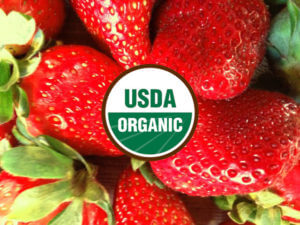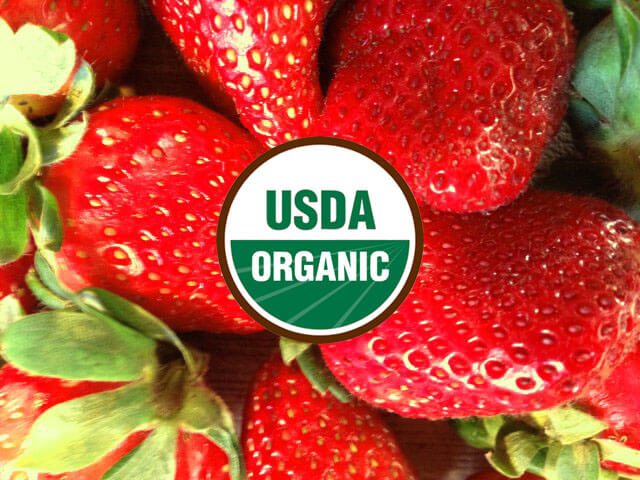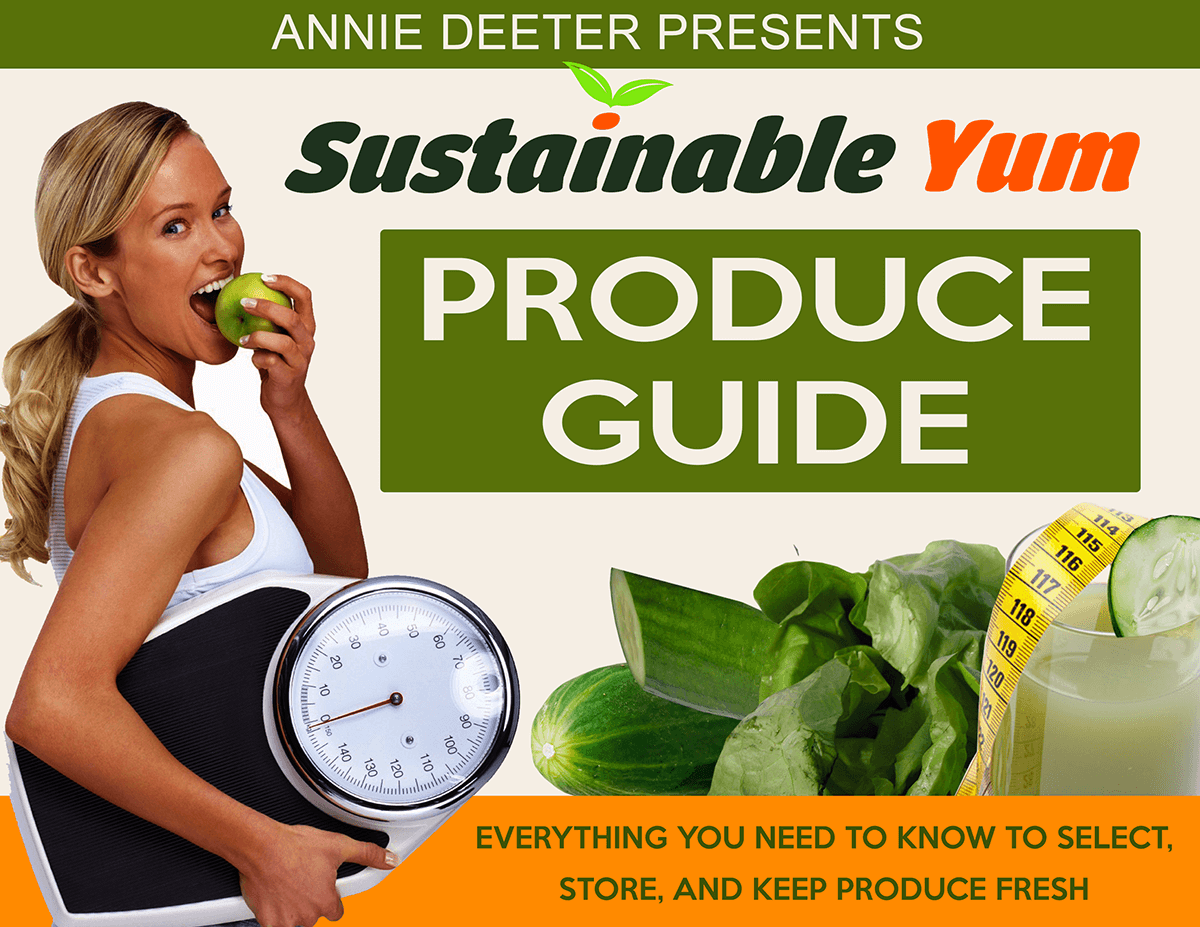Here at SustainableYum, we love our strawberries. There is no better way to eat healthy and

Healthy Eating Strawberries
celebrate the arrival of Spring than with a nice big bowl of fresh strawberries.
We’d say, in fact, that a bowl of cut up strawberries and bananas may be the most delicious way to eat healthy on earth.
Unless of course, you were to whip up some fresh raw cream, stir the strawberries and banana pieces into it. Let them chill for an hour and then eat it! But in that case, you might simply go into a state of deliciousness overdose…
Not All Strawberries Are as Healthy as You Think
However, in order for this amazing treat to really be healthy, we need to know where those strawberries came from. We also need to know the methods of growing up these fruits.
Because strawberries are not just strawberries anymore.
It turns out that they are also one of the most toxic fruits when it comes to conventionally grown crops.
Here’s the bad news: Over 300 pounds of pesticides are sprayed per acre of conventional California strawberries.
These are the clone berries we wrote about when California announced the phasing out of some of the ozone-depleting pesticides used in the California strawberry industry.
The Risk Continues…
Unfortunately, the pesticides in use are still harmful. Their use continues as the risk of losing the major cash crop of cloned California berries continues. That’s not just bad for us. It’s bad for the farm workers, the environment and the water table under the land where these berries are grown.
So, there is a continued risk from overexposure to toxins in conventionally grown (and particularly year ’round) strawberries. In fact, the EWG’s newest Dirty Dozen has put strawberries up at the top of the list again. They are even recommending that we eat the organic kind whenever possible.
I Urge You to Consider Choosing Organic
We know, not everyone eats organic, and not everyone eats organic all the time even if they do eat organic sometimes. But when it comes to strawberries, you owe it to yourself, and your family to eat ONLY organic.
For us, it’s just not worth the risk of putting all those dangerous toxic chemicals designed to kill living organisms into our bodies, or our children’s bodies!
Here’s the good news about strawberries. Organic kinds are getting a lot more popular and there are a lot more of them out there in the marketplace to buy. Best of all their prices are not as high as they used to be compared to conventionally grown berries and in the real berry season, you’ll be able to find them at really great prices.
What’s the best news of all about strawberries? It’s this: organic types that are in season taste amazing and are amazing for you. They are at the top of the charts for healthy eating. They deliver unbeatable flavor and unsurpassed nutrition.
And, here’s the best part: The better they taste – the sweeter and riper they are, the more of the potent antioxidants and disease preventing phytonutrients they deliver! So find the best, most delicious berries you can, and eat them often.
But the berries are not the only thing you need to be extra careful of. The EWG’s dirty dozen for 2018 is out, and you can find out all about it in this video.
Pay special attention to what they say about spinach, too. Neurotoxins are no joke. If Europe bans them, then we should not be eating them either.




Leave A Comment